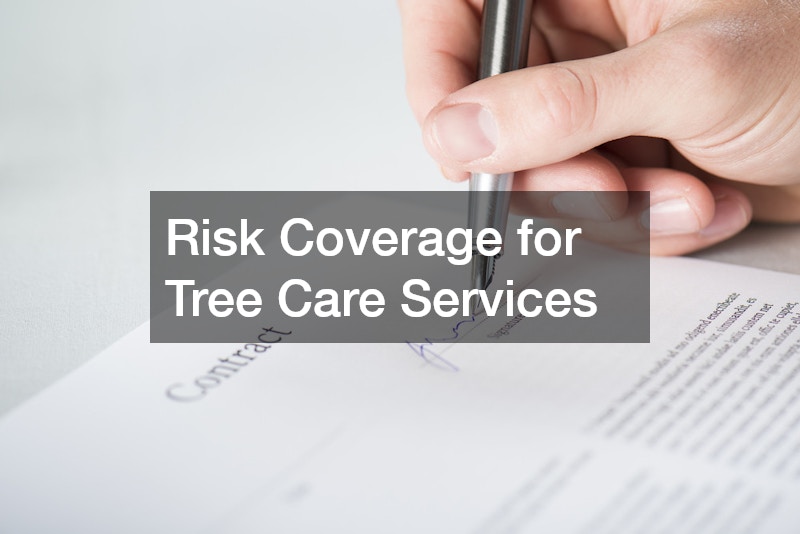
Insurance plays a crucial role in safeguarding businesses against unforeseeable events and provides a safety net that allows them to thrive in a competitive market. Whether it involves protecting assets, covering liabilities, or ensuring continuity during challenging times, insurance serves as a pivotal component for business sustainability. The intricate web of potential risks that businesses face today underscores the importance of tailored insurance solutions tailored to meet specific industry needs.
Discussing how insurance can significantly benefit various business sectors reveals a landscape fraught with unique challenges and opportunities for strategic risk management. The nature of these industries and their associated risks necessitate bespoke coverage that addresses both common and niche challenges. Throughout this article, we will explore ten specific businesses that can benefit immensely from insurance coverage, while also integrating essential home insurance tips for those seeking personal and professional protection.
The varied realms of home care service providers, surrogacy service entities, dental practices, estate lawyers, and more, all present distinctive insurance needs. Understanding these requirements helps ensure comprehensive coverage that supports operational resilience and fosters long-term growth. From the total cost of surrogacy to managing the liabilities of a tree service company, each sector harbors its own set of valuable lessons and strategies for leveraging insurance products effectively.
Key Insurance for Home Care Providers
Home care service providers operate in a domain that demands delicate handling of client relations and caregiving responsibilities. They face numerous risks ranging from employee injury on the job to client dissatisfaction that could lead to litigation. In such circumstances, liability insurance becomes a critical asset for home care services, providing a financial buffer against lawsuits and claims that can jeopardize their operations.
More specifically, home care service providers need to ensure their insurance policies adequately cover the caregivers’ work environments. This not only includes on-site coverage but extends to injuries or damages occurring in clients’ homes. Integrating comprehensive home insurance tips into business operations can also benefit these providers by advising clients and caregivers on maintaining a safe, risk-averse environment.
A well-structured insurance policy for home care provides peace of mind, ensuring that both the caregivers and the clients are protected. The seamless integration of these protective measures strengthens the trust between service providers and clients. Moreover, having proper insurance coverage can enhance the professional image of home care businesses, positioning them as responsible and client-focused entities.
Protecting Surrogacy Service Providers
Surrogacy service providers function in a complex and emotionally charged environment where understanding and mitigating risk is crucial. The process involves multiple parties—intended parents, surrogates, and legal advisors—making it essential to have insurance coverages that address potential legal and emotional liabilities. The total cost of surrogacy often includes unforeseen legal fees and potential insurance needs that can accumulate rapidly.
On a more focused note, insurance for surrogacy service providers may encompass a wide range of coverage options, such as medical malpractice, liability, and legal protection for disputes or unforeseen claims. Adopting home insurance tips ensures that all parties involved understand the terms and benefits, thus mitigating risks and enhancing confidence in the surrogacy process.
Effective insurance policies ensure that surrogacy arrangements proceed smoothly, addressing challenges before they escalate into financial burdens. By prioritizing insurance, surrogacy service providers can strengthen their operational foundation, build trust with clients, and ensure a seamless experience for all parties involved. Insurance acts as a protective shield, safeguarding both economic interests and emotional commitments in this sensitive industry.
Why Dental Providers Need Coverage
Dentists and other dental service providers operate in an environment where professional liability is a significant concern. Without appropriate insurance, a single malpractice claim could drain resources and damage reputations. A robust insurance policy safeguards dental practices from potential lawsuits, thus ensuring the stability and continuity of their services.
Specialized insurance for dentists should account for their unique operational risks. From coverage for orthodontic devices like Invisalign to protection against equipment malfunctions or client accidents, dental providers must ensure comprehensive coverage. Incorporating home insurance tips can guide dental offices in minimizing risks within their practice environments, such as preventing burglaries or equipment damage.
The key is to adopt a proactive insurance strategy that not only anticipates common liabilities but also prepares for industry-specific risks. Dental professionals need well-rounded policies that address malpractice and property loss while promoting patient safety and trust. By achieving this balance, dental practices can offer top-tier services with confidence, knowing they are shielded from financial and professional uncertainties.
Essential Coverage for Estate Lawyers
Estate lawyers navigate a complex legal landscape where even minor oversights can result in significant financial and reputational damage. Malpractice insurance is crucial for protecting estate lawyers from potential legal action by dissatisfied clients or errors in estate handling. Given the high stakes involved in estate planning and management, insurance is indispensable in upholding the trust and fidelity required in this profession.
For estate lawyers, malpractice insurance is not merely about protecting themselves from lawsuits. It involves ensuring they have coverage that reflects the depth and breadth of their practice. With the guidance of insurance providers, estate lawyers can understand policy specifics and incorporate home insurance tips to maintain secure and compliant practice environments. Coverage must include errors in documentation, legal compliance issues, and any disputes arising from estate execution.
By leveraging tailored insurance policies, estates lawyer can focus on providing exceptional client service without fear of financial ruin from potential legal challenges. This stability allows them to operate more effectively, attracting more clients and enhancing their reputation as reliable legal practitioners. Robust insurance cover also ensures that they remain abreast of changing laws and regulations, thereby minimizing risks and fortifying their client relationships.
Insurance for Funeral Service Providers
Operating a funeral service business involves handling sensitive client interactions and managing diverse logistical challenges. Funeral service providers face unique risks, including liability for service errors, damages to facilities, and job site incidents. Comprehensive insurance is instrumental in protecting funeral service businesses from potential financial losses due to claims and lawsuits.
More specifically, insurance for funeral services should cover property, liability, and workers’ compensation, tailored to fit the intricacies of their operations. By weaving in relevant home insurance tips, funeral homes can mitigate other potential risks like theft or natural disasters. This layered approach to insurance fortification allows funeral businesses to deliver empathetic and reliable services during critical times for their clients.
By investing in an all-encompassing insurance plan, funeral service providers not only protect their businesses but also build enduring trust with their clients. Properly insured, they reassure grieving families that all aspects of the service are professionally managed, reducing stress during emotional times. This emphasis on insurance translates into a significant competitive advantage, distinguishing top-quality funeral providers in the industry.
Coverage Needs for Landscaping Companies
Landscaping companies engage in outdoor environments where unpredictable variables, such as weather and equipment breakdowns, often influence operations. Without adequate insurance, these variables could cause significant financial strain. Insurance serves as a financial safeguard, ensuring landscaping companies can continue their ventures even when faced with unforeseen challenges.
In particular, a landscaper company requires coverage that includes worker injury, equipment damage, and client property mishaps. General liability insurance helps protect against accidents, while boat and car insurance might be pertinent for fleet maintenance. By adopting beneficial home insurance tips, landscaping companies can further advance their risk management strategies to cover diverse aspects of their external work environments effectively.
Implementing insurance strategies enables landscaping companies to manage risks better and promote operational continuity during unforeseen disruptions. This security attracts more clients, confident in the knowledge that their landscapes are in expert, insured hands. The comprehensive preparation through insurance not only fortifies them against financial setbacks but also enhances their reputational stature within the marketplace.
Why Insurance Matters for Insurance Agents
Commercial insurance agents find themselves advising diverse clients on risk management and policy coverage. Ironically, these professionals must also protect their businesses from possible claims of negligence or errors in consultation. Proper insurance coverage ensures commercial insurance agents can operate their services in trust and confidence, offering clients the risk management support they need.
To stay protected and uphold client trust, commercial insurance agents require policies that address their operational risks. This includes errors and omissions insurance, which acts as a defense against claims of missed advice or negligence. Home insurance tips allow agents to ensure their premises and operations are secure and compliant with current regulations, therefore reinforcing their professional commitment to clients.
Adequate insurance coverage not only guards commercial insurance agents from potential risks but also enhances their credibility. With comprehensive protection, agents can offer unbiased advice while maintaining high ethical standards. This dual benefit ensures brand trustworthiness, boosting client loyalty and business sustainability across competitive markets.
Risk Coverage for Tree Care Services
Operating within both residential and commercial spheres, tree service companies encounter numerous risks ranging from property damage to employee injuries. The nature of their work, often involving hazardous equipment and unpredictable conditions, necessitates comprehensive insurance cover to manage liabilities effectively.
Specific to tree service companies, insurance policies should cover general liability, equipment damage, and workers’ compensation. By integrating home insurance tips, these companies can ensure the safety of their operations and client properties, fostering a secure working environment. Key protection areas should also involve fall protection, equipment maintenance, and environmental compliance.
Through adequate insurance, tree service companies can focus on delivering quality workmanship without the looming fear of financial repercussions from accidents or site mishaps. This strategic safeguard not only protects their bottom line but enhances their service reputation in a competitive marketplace. As a result, comprehensive coverage positions them to attract more customers while maintaining operational safety and proficiency.
Protection Plans for Plumbing Companies
Working often in confined spaces and dealing with various structural systems, plumbing companies face higher risks of injury or property damage. Without insurance, a simple oversight or accident could lead to costly legal challenges or financial liabilities that devastate bottom lines.
Plumbers need comprehensive employer liability insurance and policies that cover damage to property and plumbing systems. Implementing home insurance tips ensures plumbed properties remain secure and compliant with industry regulations, which is crucial for long-term relationships with clients. It entails risk management strategies that integrate ongoing training and secure work environments, essentially minimizing accident probabilities.
Insurance ensures plumbing companies operate with a safeguarded framework against potential claims, securing business continuity in unforeseen instances. This assurance not only attracts clients but instills confidence in both clients and employees, bolstering company reputation. With strong insurance underpinnings, plumbing businesses can consistently deliver services without fearing the financial impacts of unanticipated disruptions.
Septic Service Providers and Insurance
In dealing with waste management systems, septic service providers face distinct challenges that demand tailored insurance solutions. Working in hazardous setups increases the probability of accident or health risks. As such, securing comprehensive insurance coverage spares these providers from potential liabilities which can severely affect operations.
More specifically, septic pumping businesses should obtain pollution liability insurance—covering environmental damages—and general liability insurance for mishaps on client property. Applying home insurance tips equips them with the know-how to fortify workplace safety and client interactions. These providers benefit from insurance coverage, ensuring environmental compliance and operational integrity are well maintained.
The bundle of insurance coverage enhances septic service providers’ ability to attract a broader clientele base through professional assurance. Managing risks effectively with insurance translates into increased operational efficiency and reputational growth. With adequate protection, septic service providers can excel in service delivery without the threat of costly liabilities overshadowing their business endeavors.
Integrating insurance into business plans is critical, especially for the diverse sectors explored in this article. From home care service providers to septic service providers, each industry showcases a distinct set of risks that necessitates careful risk management through targeted insurance strategies. With the keyword “home insurance tips” woven throughout, businesses not only enhance operational and workplace safety but also build client trust and long-term sustainability.
The landscape of insurance demonstrates that businesses, regardless of size or sector, benefit significantly from appropriate coverage. Whether through liability insurance for estate lawyers or malpractice insurance for dental providers focusing on devices like Invisalign, each industry requires tailored solutions that address their specific operational weaknesses. Emphasizing the right insurance policies helps businesses navigate challenges while maintaining steady growth trajectories.
Ultimately, understanding and integrating insurance as a core element of business strategy amplifies resilience against uncertainties, nurturing environments that prioritize safety and financial security. As revealed through these ten essential business types, insurance strategies provide the leverage needed to transform potential risks into opportunities for growth. Through this, businesses strengthen their positions in their respective markets, fortifying themselves against unforeseen liabilities while enhancing professional reputations.







